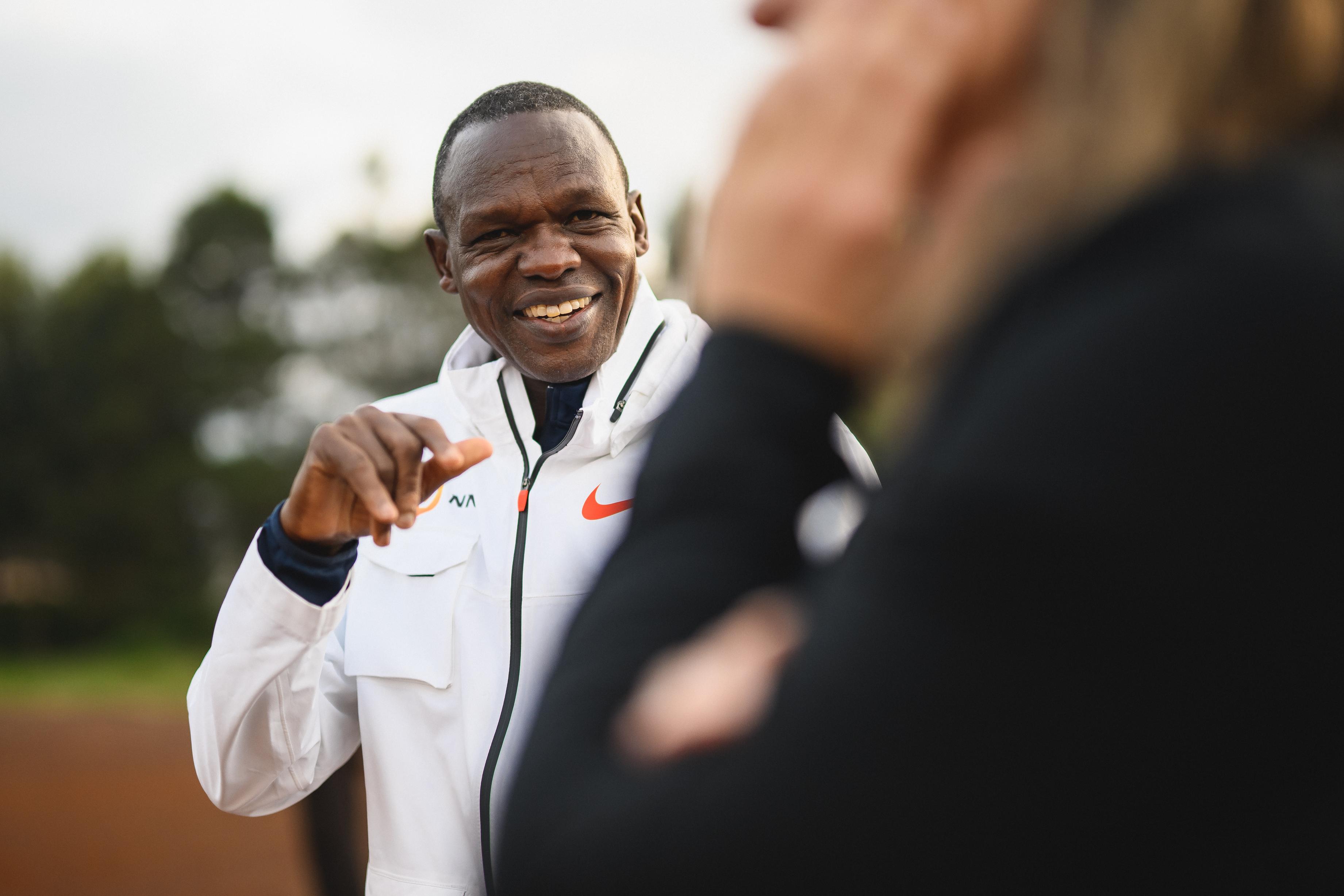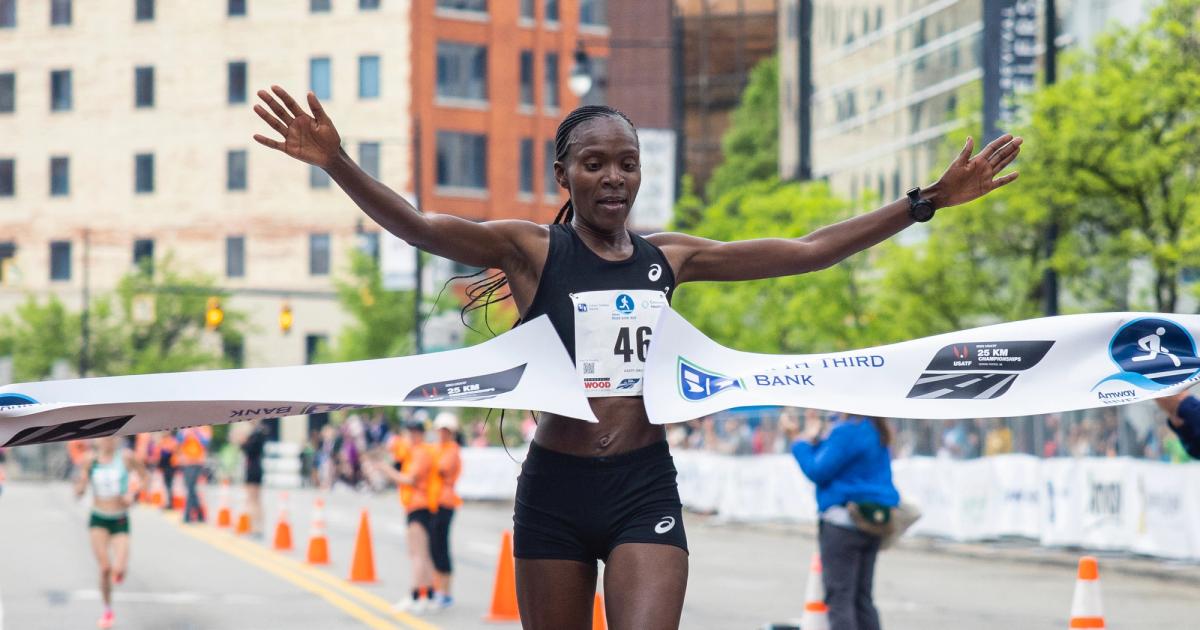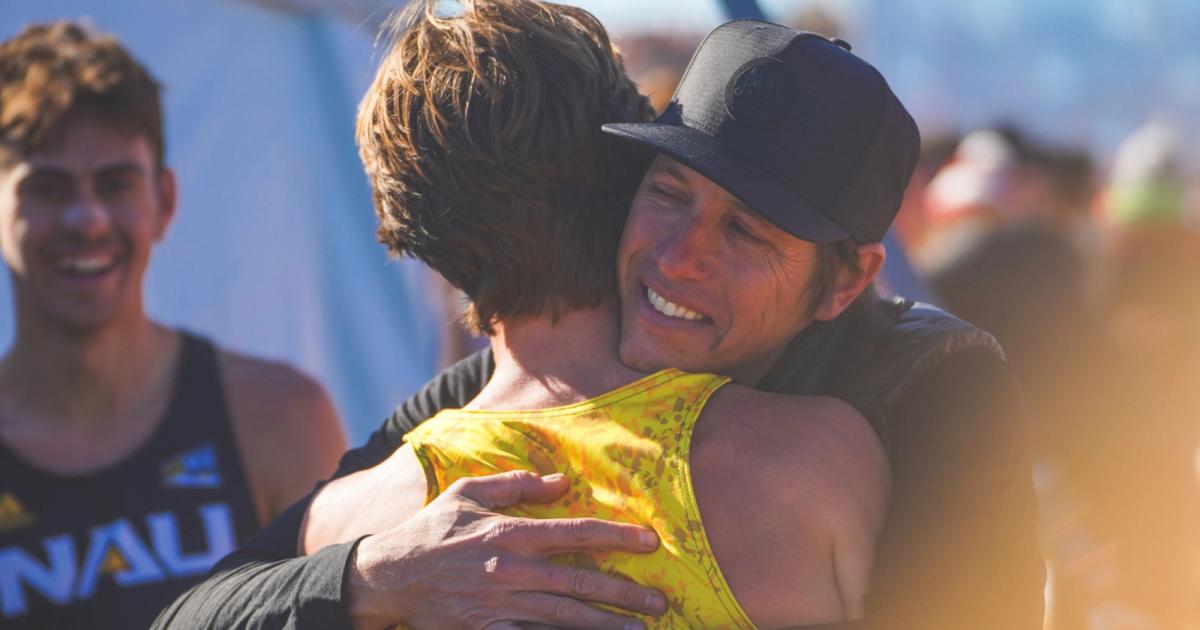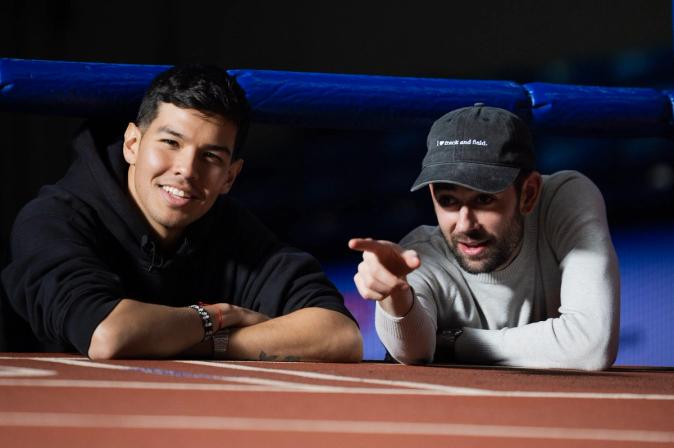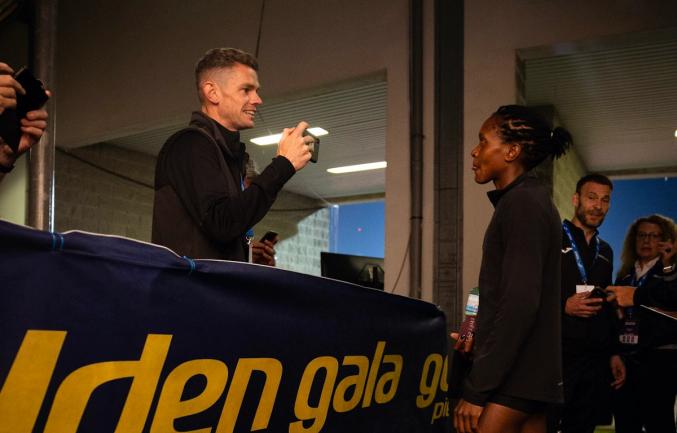June 20, 2023
Listen
"We think of ourselves as people on a journey. So when you get to your first station, that's not the end of the journey. We still have to walk some more distance. That is their mindset and it's my mindset because if I dwell on the past, then we'll end up in that station. We still have many to cover, and I’m happy that they still trust me to cover their distance and be with them."
CITIUS MAG is in Kenya. I am coming to you live from Eldoret, where I had the pleasure of being invited to visit and cover some of the behind-the-scenes of how the NN Running Team trains.
Coach Patrick Sang is 59 years old and is the man behind all of Kipchoge’s success on the track and the roads. He’s the runner who Eliud grew up admiring since Sang was a silver medalist in the steeplechase at the 1992 Olympics. He’s been coaching for more than half his life and is one of the most knowledgeable men in the sport. While he keeps it traditional and old-school in some of his approaches to training with three hard workouts a week for most of his athletes including Kipchoge, his philosophy is aimed at making his athletes well-rounded.
One of his most recent success stories has been Faith Kipyegon cementing herself as the greatest 1500m runner ever by breaking the 1500m world record in 3:49.11 at the Florence Diamond League on June 2 and then surprising herself a week later and breaking the 5000 meter world record in 14:05.20.
What you’re about to listen to is my conversation with one of the greatest minds in the sport and someone who wasn’t surprised by Faith Kipyegon. He’ll share how we got to this point, where we’re going and what brings him joy and satisfaction in the sport.
For more, listen to the episode on the CITIUS MAG Podcast feed. Available on Apple Podcasts, Spotify and other major podcast publishers.
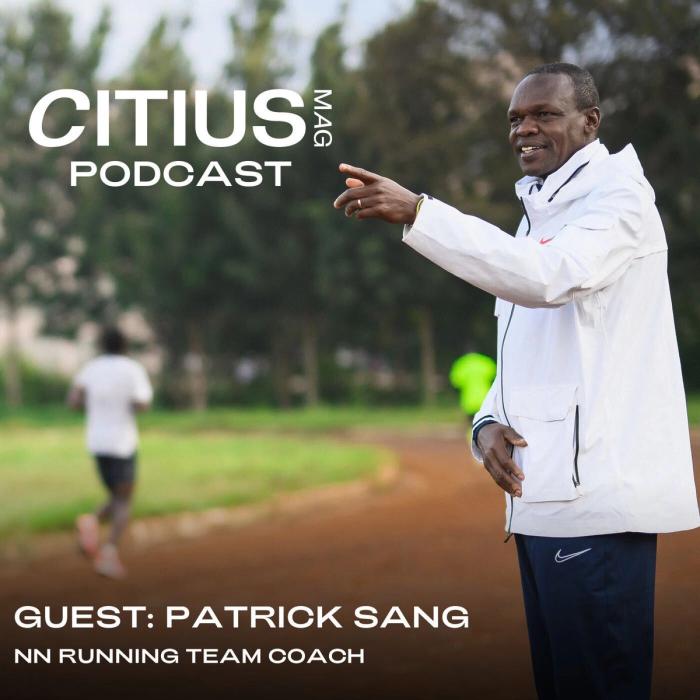
NOTABLE QUOTES
What brings you more satisfaction: a good day at the track in practice or when you see a world record fall? In practice, you have to have those moments that also bring you excitement.
"When I go to training with the athletes and see that they’re happy, even if the training is painful, those are the moments that I really enjoy–because I know having been an athlete myself, it’s not easy. But when you still see a smile on their face after hard training, those are joyful moments. What is more interesting for me is the progression. When I see an athlete moving from point A to point B to point C in a positive trajectory, it gives me a lot of pleasure. I look forward to the next session because it means they're making good progress. To me, it's more important than the final product. Most people look at the world records and the medals but I look more at the progress towards those ends."
You've worked with so many great athletes–what do they all have in common?
"What is different with them and what is making us look up to them as athletes is the way they look at the sport. They see the sport in a bigger way, that this is an opportunity to exploit the talents that they have. And they don't look back. They give 100% of their time and energy. We are privileged as a coaching team. I lead a team of coaches that handle these athletes. So we feel privileged that they can trust us with their talents. And when you see them giving their maximum effort in training and competition, you feel good."
As a coach, you have to learn and see what other people are doing and how some of the other best runners are performing. So how do you balance, “we can try that” or “That's not for us”?
"For me, the biggest textbook I read is in the form of [studying] the athletes. We agree based on their potential which direction we want to go. The progress they make informs where you can still go with that athlete as an individual. Knowledge for knowledge’s sake is important, but knowledge that you can apply toward a goal is knowledge that I want to use. You can experiment with new knowledge and that gives you the feedback you need to make progress with a particular person."
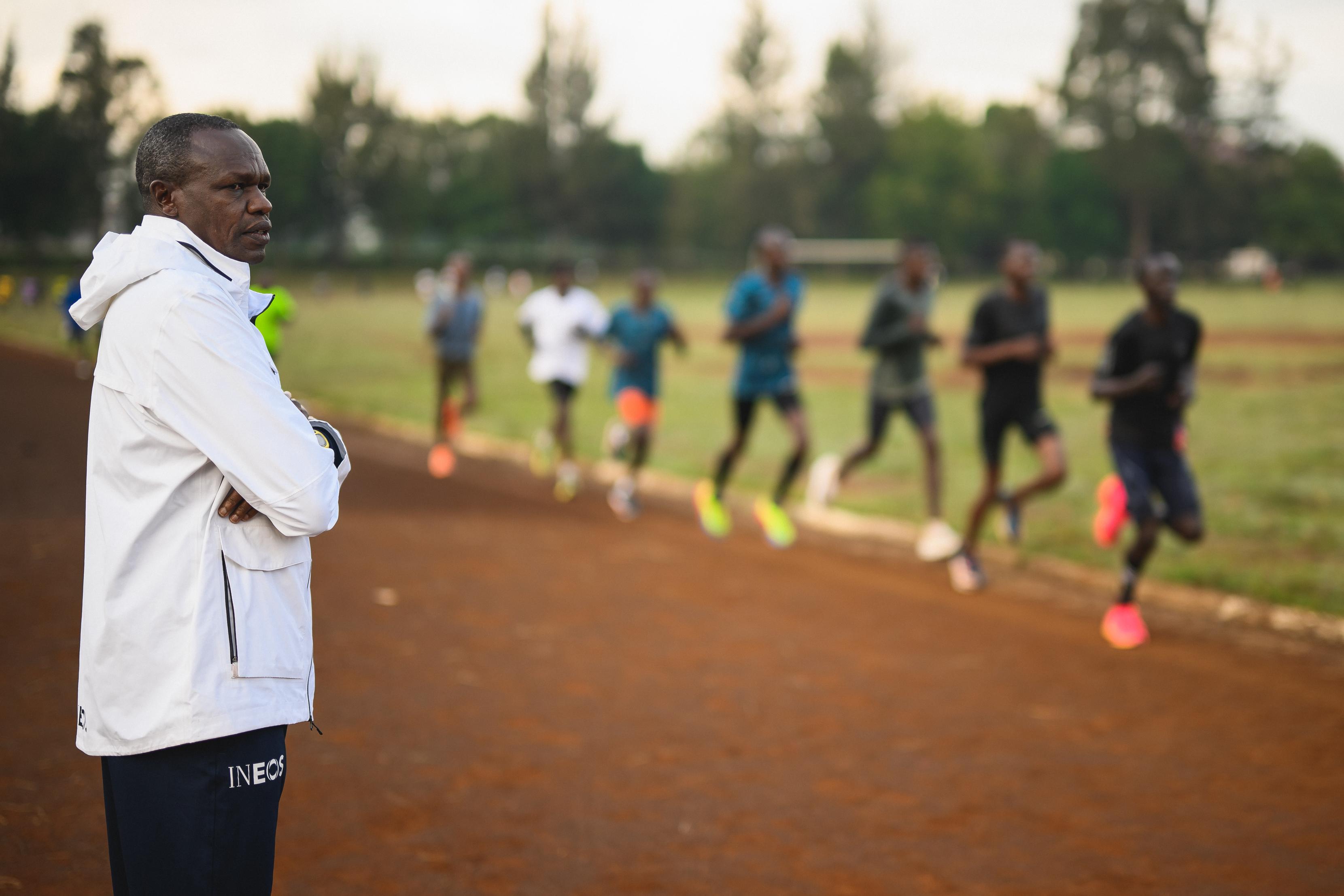
Courtesy NN Running Team
When Faith ran the 1500m world record, she went ahead of the lights and the final lap was 60 seconds. That's Faith's biggest strength–the kick she has in the last lap. Over the years, how have you focused on refining that speed?
"She has the capacity for serious endurance, and she has the capacity for pure speed. [Athletes like her] are a rare species. They're not common. So working on speed is not one of the biggest weaknesses that we want to eliminate, because it's a strength in itself…sometime between Florence and Paris, she was asked by somebody, 'Which phase are you at in your training, the hard side?' And she said 'medium' – because psychologically we're not done what we’re doing towards trying to run a good 800m and a good 1000m. We have not gone there yet, but she knows it's coming."
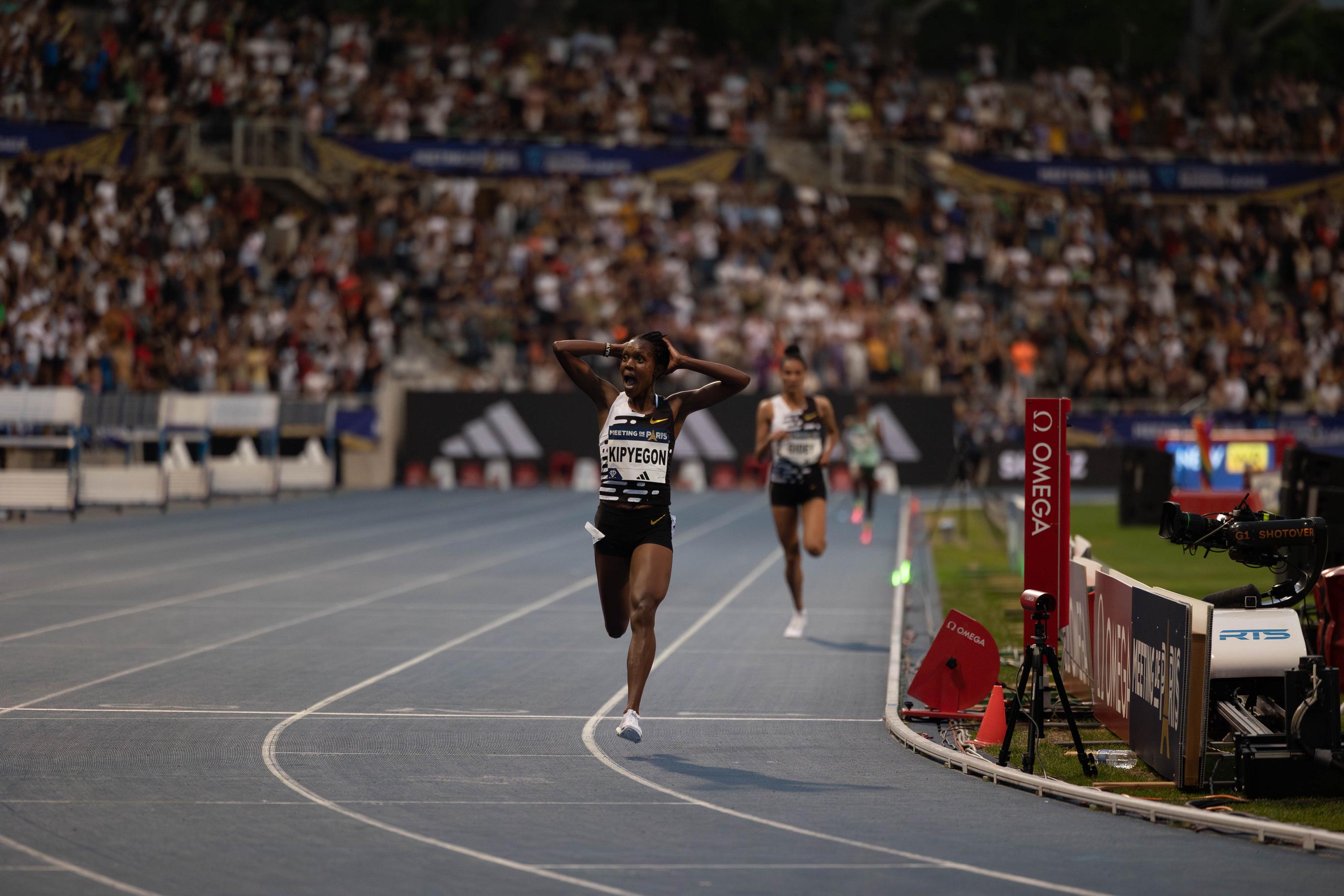
Johnny Pace/@pacephoto
Success hasn't changed you. It seems like with all these athletes setting world records and winning the major marathons, you're still the same you. How do you do that?
"We think of ourselves as people on a journey. So when you get to your first station, that's not the end of the journey. We still have to walk some more distance. That is their mindset and it's my mindset because if I dwell on the past, then we'll end up in that station. We still have many to cover, and I’m happy that they still trust me to cover their distance and be with them."
You should allow yourself a little bit of time to celebrate! Do you allow for a little celebration? Maybe an ice cream at dinner that night?
“When Eliud ran under 2 hours [for the marathon], everybody organized a big celebration. But we came back quietly and we settled back into normal life. People were asking me, 'Why are you not celebrating?' This is how I want to answer your question: Celebration to me is learning something from what happened. And if it's a positive thing, you can [celebrate]. So what's the lesson from Breaking Two or any other achievement? The lesson is that we have the potential to be at our best in everything we do. So if you see people performing, the best way to celebrate is to acquire and actualize what your potential entails, whatever field you are in.”
When you wake up in the morning [of a competition], are you nervous? Scared?
"Most of the time I try to block my brain from thinking, because the minute you start thinking about the competition, you think about what could easily happen. When we had the INEOS challenge [with Eliud], if I were to dwell on that, I would start thinking about what could easily happen. Suppose he wakes up with a cold in the morning. The possibility was there. You don’t want to dwell because you’ll go crazy. If you think about how much you invested in one person, you'll go crazy. I don't want to put myself in that position, so I don't think too much. And naturally, I don't discuss races with athletes. When I go with them, I know they are ready to compete. I just tell them, 'good luck'."
That's your final instruction. Good luck.
"Good luck. I don't want to tell them 'go down like this', because at the end of the day, these are individuals with brains. They have run before. They have trained. They know how to operate. Everything is in the mind. If they’re scared, they will perform poorly. So it doesn't matter what plan you give them because they won’t listen–their mind is already programmed to focus on the race."
Final question I've got for you: How much longer do you want to do this? You've been doing this for a long time. You talk about these stops and destinations. When do you get to your destination?
"As long as I'm still strong, energetic, and people still appreciate what I do, I'll continue doing it."
I love it. Patrick, thank you so much for your time and wisdom. I’m very excited to see the camp.
"Hopefully you'll enjoy it! Thank you. And bring home this positive message: Celebration is learning something out of what has turned out to be a good thing."
Support The Sponsor

OLIPOP
OLIPOP is a prebiotic soda with only 2-5g of sugar that is actually good for your gut health. – and it's delicious. Use code CITIUS25 for 25% off non-subscription orders. Learn more at https://DrinkOlipop.com

NEW BALANCE
I’ve had a pretty solid shoe rotation this spring with New Balance. I’ll do my everyday junk miles in the FuelCell SuperComp trainer. I’ll do some tempo runs and long runs in the FuelCell SC Elite v. 3. Occasionally, when I have to spike up, I’ve thrown on the FuelCell MD-X v2. Check out NewBalance.com for all of their offerings.

GARMIN
Introducing the Forerunner 965 from Garmin, the ultimate GPS running and triathlon smartwatch. With a bright AMOLED touchscreen display and lightweight titanium bezel, this premium watch is designed for athletes who demand the very best. Learn more here: https://www.garmin.com/en-US/

UCAN
UCAN is offering the Citius Mag community an exclusive chance to try 6 Edge samples for free – all you need to pay is the cost of shipping. Just head over to ucan.co/citius to claim this exclusive offer. And if you're already a fan of UCAN or want to try some of their other products, use code CITIUS at ucan.co to save 20% on the full variety of products.
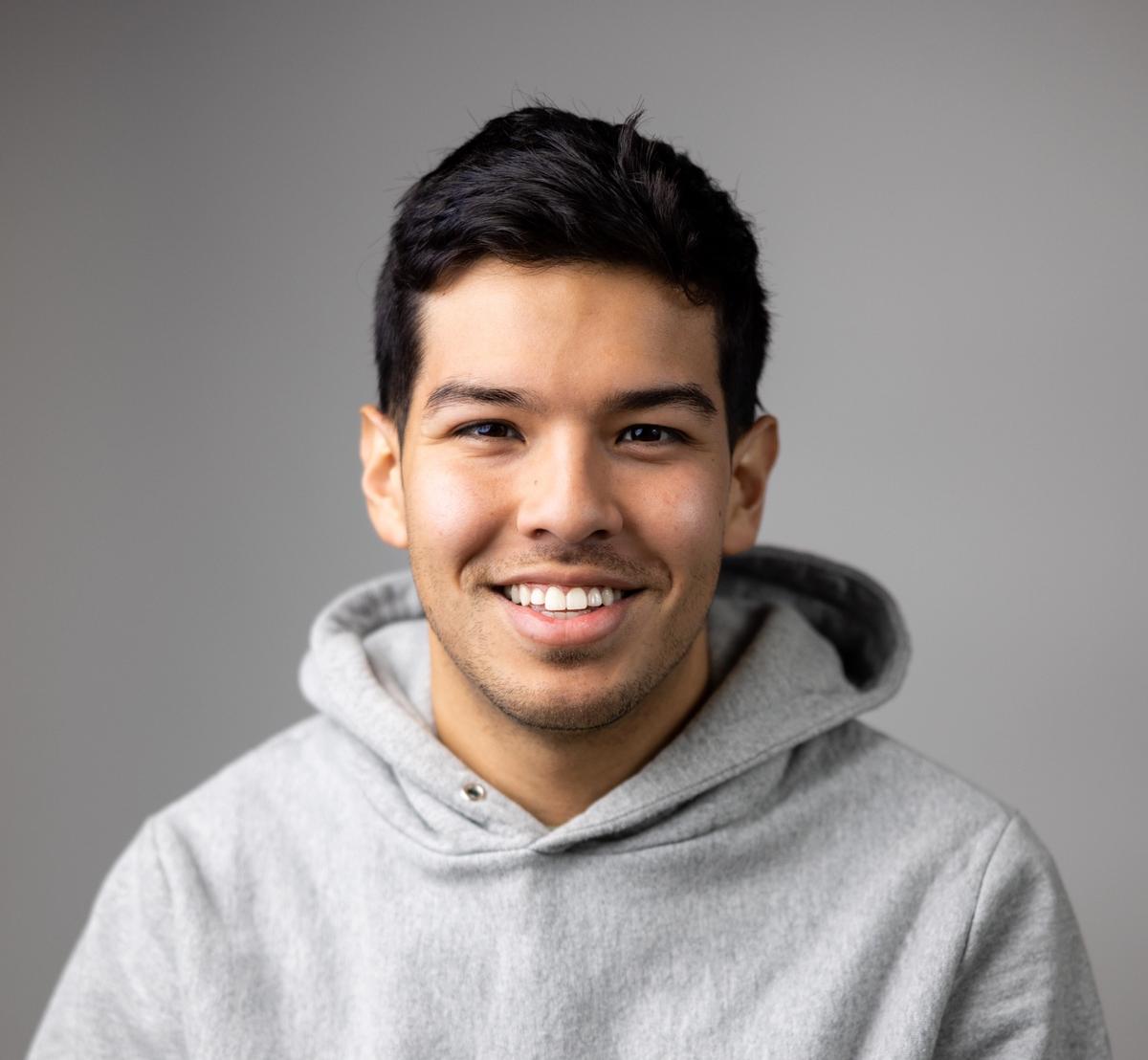
Chris Chavez
Chris Chavez launched CITIUS MAG in 2016 as a passion project while working full-time for Sports Illustrated. He covered the 2016 Olympics in Rio de Janeiro and grew his humble blog into a multi-pronged media company. He completed all six World Marathon Majors and on Feb. 15th, 2025 finally broke five minutes for the mile.
